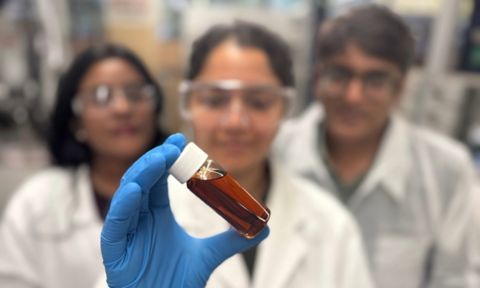Melbourne cycling infrastructure plan risks getting stuck in low gear if feeder networks not considered: new research
A new study highlights how far Melbourne still has to go in becoming a cycling city, warning the state government’s plan for strategic cycling corridors must be complemented by local government efforts to make local streets safer for cyclists.
Smart spongy device captures water from thin air
Engineers from Australia and China have invented a sponge-like device that captures water from thin air and then releases it in a cup using the sun’s energy, even in low humidity where other technologies such as fog harvesting and radiative cooling have struggled.
Harnessing data to drive liveability
RMIT is collaborating with government and industry partners on an innovative data sharing project, which aims to create more sustainable, liveable and healthier communities.
Aussie tech helps make bio-oils for greener industrial applications
Australian technology developed at RMIT University could enable more sustainable and cheaper production of bio-oils to replace petroleum-based products in electronic, construction and automotive applications.









